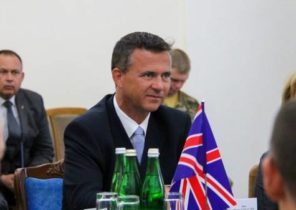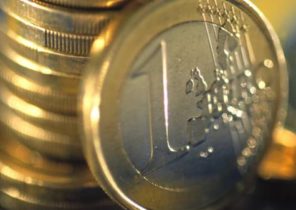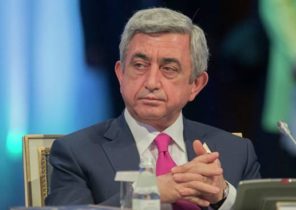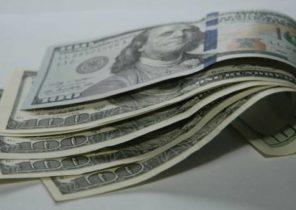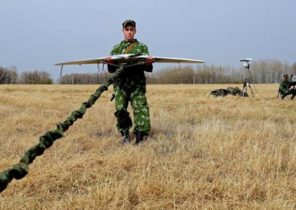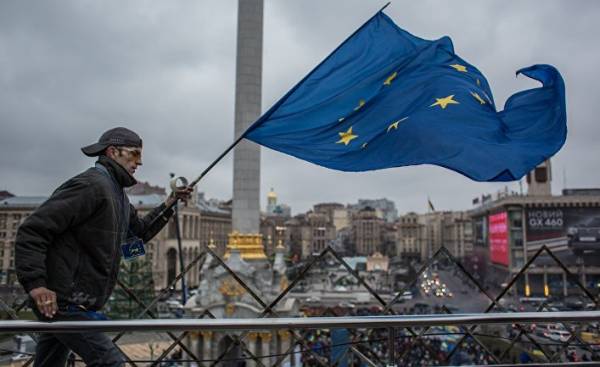
The Krynica zdrój, a small mountain resort located in Polish Beskidy mountains, known since the XVIII century for its mineral springs. Krynica is full of tourist attractions that draw visitors throughout the year.
After the founding of the Economic forum in Krynica, often called the “Polish Davos” after the Swiss Alpine resort, known for its winter conference, which brought together the world elite of business and politics.
For the first time the Economic forum in Krynica Zdroj was held 25 years ago. This meeting will be the twenty-seventh.
From the beginning the event was conceived as an international project aimed at stimulating cooperation between the countries of Central and Eastern Europe. The conference was to facilitate economic contacts, promote European integration and to create additional opportunities for dialogue and discussion of interesting and relevant topics.
In the debates of the forum is usually attended by the presidents and Prime Ministers, leading politicians of the region, Ministers, EU commissioners, parliamentarians, and businessmen, representatives of the largest and fastest growing companies of the “new Europe”. Krynica also met prominent scientists, rectors of universities, opinion leaders and artists.
A high level guests, the variety of viewpoints presented during the discussion, have become a magnet for public interest. During the last years the number of participants has grown rapidly and now regularly exceeds 3,000 people.
The organizers of the economic forum the skillful use of convenient resort location — close to the border with Slovakia and Ukraine near Hungary, the Czech Republic and Austria, are encouraged to participate in the event, guests from Western Europe, Baltic countries, Russia and Belarus.
From the beginning, Ukraine was one of the most important partners and participants of the Economic forum in Krynica.
Many times the event was attended by Ukrainian presidents and Prime Ministers that got here a good opportunity to introduce my European colleagues point of view of Kiev on key issues. Discussions also regularly attended by Ukrainian Ministers and parliamentarians.
Among the holders of the most important awards given in Krynica, it is possible to find a Ukrainian surname. So, “Man of the year” became Viktor Yushchenko (in 1999 for her achievements at the head of the National Bank of Ukraine) and Yulia Tymoshenko (in 2005 after the success of the “orange revolution”).
Honorary diploma for the best non-governmental organizations in Central and Eastern Europe marked the Kiev Razumkov Center. And last year a special award the forum received the historian Jaroslav Gritsak. Krynicki among the winners was also the euromaidan protests and the head of the football Federation of Ukraine Grigory Surkis.
Particular the level of Ukraine’s presence in 2016.
At the meeting of the Prime Ministers of the Visegrad countries (Poland, Hungary, the Czech Republic and Slovakia), the status of special guest was the Prime Minister-the Minister of Ukraine Vladimir Groisman. In his speech, he stressed that Ukraine is unwilling and unable to abandon the effort in favor of joining the European community.
In last year’s forum was also attended by the Vice Prime Minister on European and Euro-Atlantic integration Ivanna klympush-Tsintsadze, the Minister of energy and coal industry Igor Nasalik, numerous parliamentarians, representatives of regions and cities. Krynica was also well represented business.
Just last year the Ukrainian question was dedicated more than fifteen panel discussions.
The greatest interest of participants of the Forum called talk about the Ukrainian decentralization reform, energy policy and the situation with the Crimean Tatars, cross-border cooperation and the possibility of creating a new “Marshall Plan” for Ukraine.
The Ukrainian issue has not disappeared from the agenda and present, the 27th Economic forum held in Krynica, 5-7 September. The organizers expect the arrival of the first Deputy Prime Minister of Ukraine Stepan Kubiv and Ministers and their deputies, a group of Ukrainian parliamentarians and representatives of local authorities from the areas most interested in the Polish-Ukrainian cooperation and European integration.
27-th Economic forum in Krynica Zdroj will be held under the slogan “Project Europe. A prescription for the next decade.”
The structure of the program is similar to last year: six plenary sessions with the participation of the most important guests, including presidents and Prime Ministers of countries in our region, and around 200 discussions and other activities. The program consists of thematic units, such as international policy, investment and development, macroeconomics, mass media and information security, new economy, society, security policy, energy, innovation, health care, Europe of the Carpathians, the Polish Diaspora forum, the forum of regions, etc.
Among the topics of a panel discussion that will be relevant to Ukraine, you should pay attention to the following: “a European strategy for the Carpathians — a new quality of cross-border cooperation”, “inter-regional public diplomacy partnership of cities and regions at the international level”, “Before the next enlargement of the EU and NATO to the East. How to provide security and development to Eastern Europe?”, “Poland — Ukraine. In search of a new model of partnership and cooperation”, “Ukraine 2014-2017: progress and disappointments,” “Labor migrants from Ukraine to the European labor market,” “Hybrid war of Russian Federation against Ukraine, the Baltic States and Poland. How to deal with?” and many others.
Among the speakers will be very interesting speakers from Poland and Ukraine, and from other European countries.
The organizers of the conference — Warsaw “Institute for Eastern studies” and lesser Poland, on the territory of which is located in Krynica zdrój, sincerely invite guests from Ukraine to participate in the event.
They hope that the 27-th Economic forum will be a good opportunity for politicians, businessmen, experts and social activists to exchange ideas about how to solve the difficult questions that modernity has put the Europeans in 2017.


